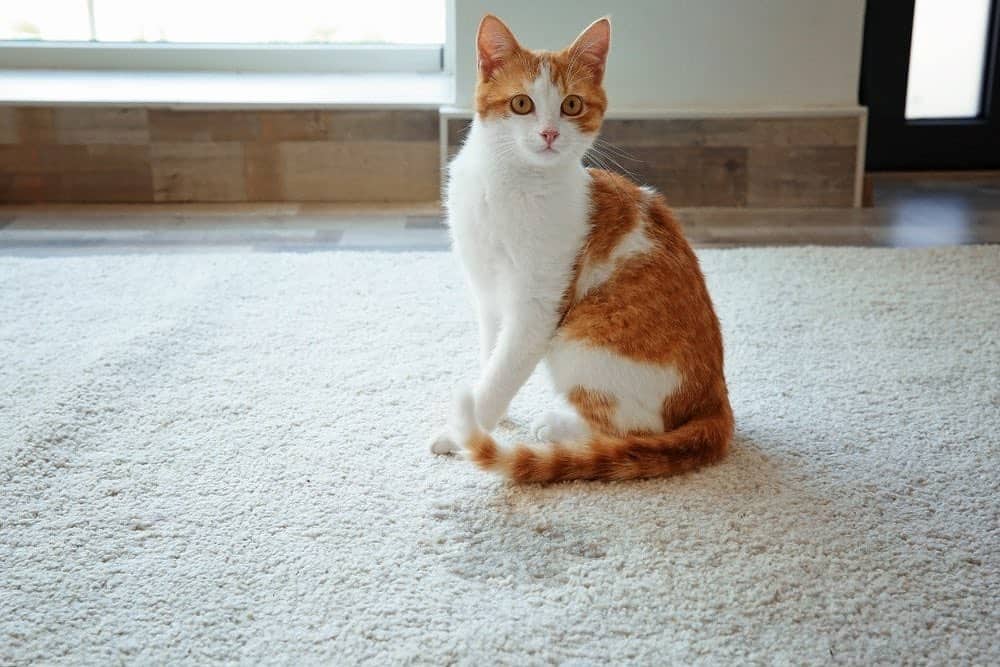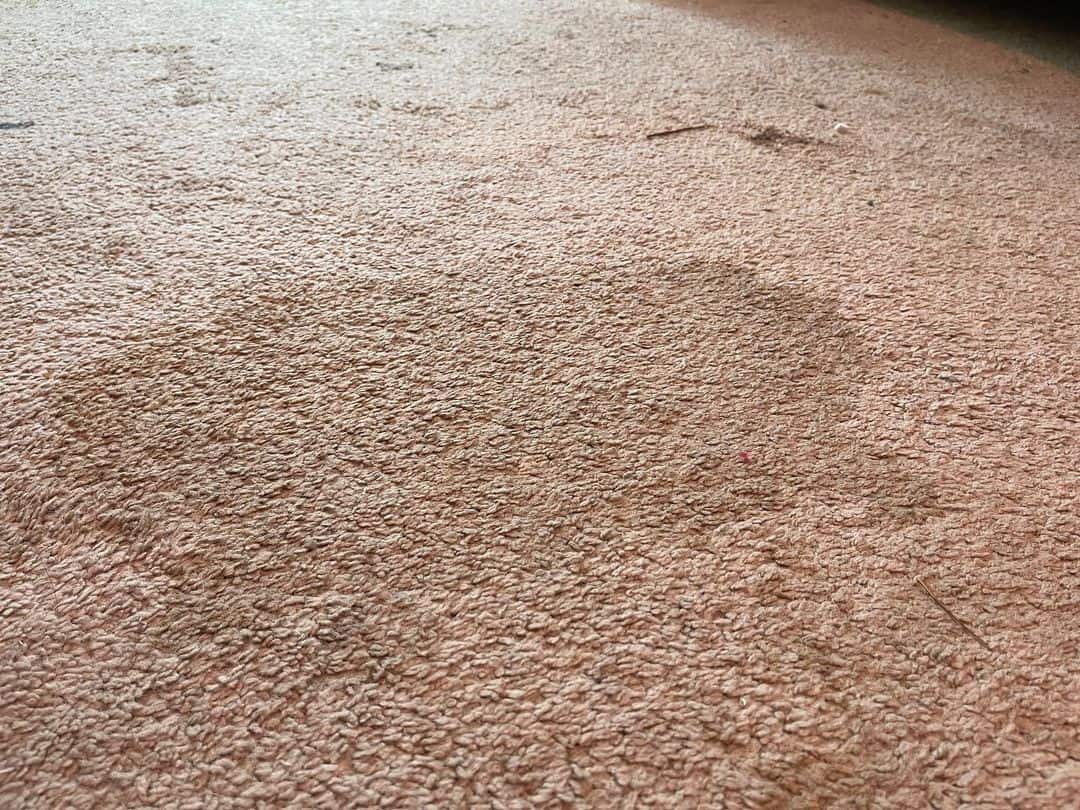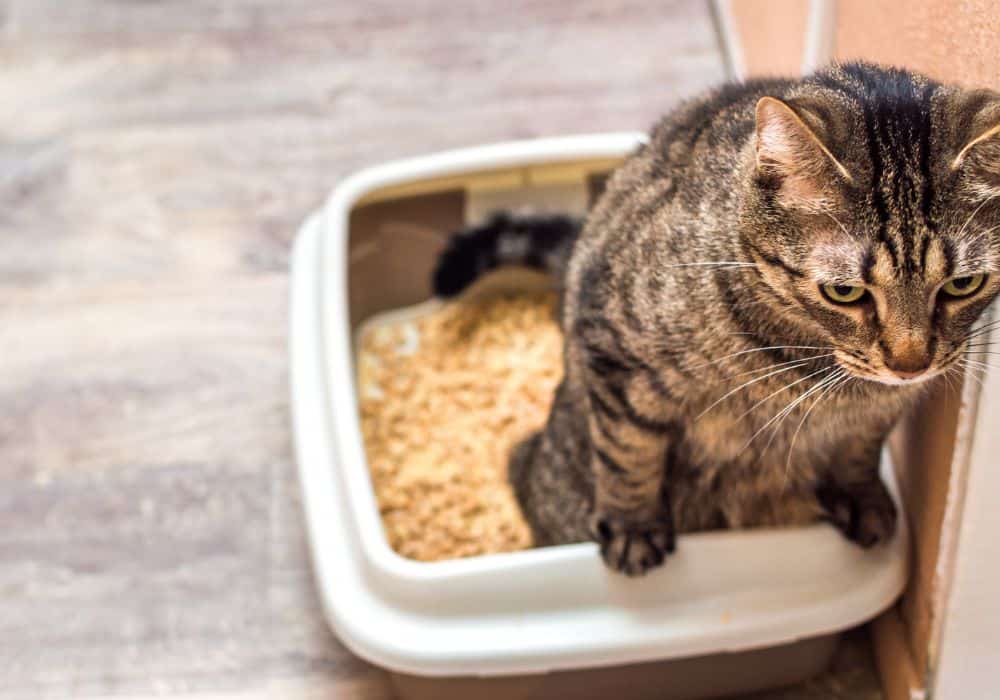Cat urine is potentially the worst kind of smell to experience. And once you’ve detected it, chances are high that you’ve tried everything possible to neutralize it.
But when cat urine is sprayed on concrete, things can worsen. That’s because concrete can absorb urine as a porous material, and it will lie dormant for years on end.
Left untreated, the urine can release and cause that foul smell to return. But there are ways to help combat cat urine once and for all.
This article will explore four of the most effective and practical ways to clean up cat urine – once and for all. We’ll also share our expert tips on best detecting, treating, and avoiding future sprays!
How to get rid of cat urine smells from concrete
Before applying any cleaning product, you should try removing as much dirt and urine as possible from the area. Put on gloves, and use paper towels to soak up the liquid. Below are four treatments to help shift the urine from your concrete once and for all!
1. Trisodium Phosphate (TSP)
Trisodium phosphate is a potent, fast-acting industrial cleaning agent with a proven track record of treating cat urine on concrete. Once you’ve cleaned the offending area, mix 1 gallon of clean hot water with ½ cup of solution. Apply and push the solution into the concrete surface using a scrub brush.
When mixing and applying this chemical, please note that you need to wear protective gear, including gloves and a face mask. Trisodium phosphate can create both skin and eye irritation. If the concrete is inside, ensure the room is well-ventilated for the entire cleaning process.
Often when TSP comes in contact with urine, it will amplify the smell. Do not worry – you are not making the problem worse. This is a good sign that the product is neutralizing the urine. After ten minutes, rinse clean, and vacuum the excess solution. Wait 24 hours before repeating the process.

carpetchik
2. Hydrogen Peroxide
Hydrogen peroxide is a common disinfectant found around many homes and can effectively treat cat urine. Though more effective on surfaces like carpet and wood, you can still use them on concrete. It works slower than other methods, so patience is a must.
On the plus side, you do not need to scrub or brush the solution into the concrete. Apply a generous mixture, and it will work its way into the concrete. Mix two teaspoons of baking soda, one teaspoon of dish soap, and two cups of hydrogen peroxide. Pour on the area and allow it to be set for up to 24 hours.
The only downside to using hydrogen peroxide is that you may need to repeat this process several times to dispel the pungent odor fully.
3. Vinegar
Arguably one of the easiest and quickest methods for treating your concrete is using something you most definitely have in the kitchen cupboard – vinegar!
Vinegar is a good method to try because it is chemical-free and safe to use around family and pets. Especially if the culprit of the urine is your family pet, and the stains are indoors, you can use vinegar without having to close off the room.
Vinegar also has less chance of staining or discoloring concrete when applied, so you can use generous amounts to maximize your success. To use this method, mix two parts vinegar with one part hot water, and scrub at the urine spot. Do not rinse the vinegar off – instead, allow it to leech into the concrete for up to 24 hours.
4. Enzymatic Cleaner
Though more expensive, enzymatic cleaning products are tailor-made to quickly neutralize and eliminate foul odors. They contain helpful bacteria that, in turn, create enzymes. These enzymes quickly break down urine into carbon dioxide.
If your urine problem is terrible, consider using this method first and foremost. Apply the cleaner directly onto the affected area, and scrub continuously with a brush for ten minutes. This will ensure the maximum amount of product leeches into the concrete floor.
Most people report that they only need a single application of enzymatic cleaner to eliminate all odors. Some cleaning solutions may require a specific mixture before use or ask you to cover the treated area with a sheet to slow the drying process and allow maximum contact with the urine. Refer to the instructions on the product for more detailed information.

cleanforceone
FAQs
Why does regular cleaning not work on concrete?
Many think a strong odor remover is all it takes to eliminate urine. And while yes, this can temporarily mask the smell, it does not deal with the source of the problem – the dormant urine leeched inside the concrete.
When urine and concrete come in contact, uric acid crystals will tightly bind together with the concrete. These crystals are insoluble, meaning that regular water-based cleaning products are ineffective.
The uric crystals will activate again once the moisture reaches them. So while an odor-removal spray bottle may remove the smell at that moment, it will not prevent the residue from reactivating. That is why you need a treatment like the ones mentioned above.
Can I use bleach to clean cat urine?
There are mixed messages about bleach’s efficacy against cat urine. We advise against using bleach because cat urine contains high concentrations of ammonia.
When bleach and ammonia come in contact with one another, it releases a highly toxic gas that can cause more problems than it solves.
How can you identify where cat urine is?
If you’re struggling to identify where the cat urine is on your concrete, you can use a simple UV light. Hold the light a few feet away from the ground at nighttime and scan the area.
Cat urine can appear blue, yellow, or green depending on how long it has been there. Put on rubber gloves, and draw outside the areas using tape or chalk to keep a record of fresh urine spots.
Why is cat urine so bad?
Cat urine smells particularly bad compared to other animals because of their physiology. Cats originated from the desert and so have very concentrated urine to help preserve water in their bodies. As a result, when they pee, the smell can be incredibly pungent and foul.
Other factors that can influence the smell include gender (male cats produce worse urine because of hormones) and the age and health of the cat in question.
Expert Tips
- When using a concrete treatment, it’s a good idea to perform a patch test- this ensures the cleaning products won’t permanently stain your concrete!
- Especially if the culprit cat is your family pet, avoid using unofficial or homemade chemical products. You might not realize the effect these can have on your pet!
- If you fail to clean the urine properly, the cat will likely re-offend and spray the area repeatedly.
- Consider placing additional litter boxes around your home, including the basement and outside, to encourage your cat to urinate there.
- Excessive and intense urination could indicate your cat is in poor health. You might be able to remedy repeated urination by visiting your local vet.
- Spaying (neutering) your cat has been known to reduce their urge to spray urine everywhere.
- If the cat is not your family pet, consider planting strong-smelling herbs and plants (like lavender and lemon thyme) around your concrete. These smells are known to irritate and keep cats away.
Conclusion
Cat urine creates a disgusting smell in your concrete and can pose a severe health risk for you and your family. It would be best if you cleaned the area as soon as possible.
Our article shows this is easy once you have the proper equipment, chemicals, and method. An enzyme cleaner is arguably your best shot at quickly removing the urine. But you should also consider household vinegar and hydrogen peroxide as effective methods.
If you are suffering from persistent cat urination, there are ways to keep the culprit away from your home. Consulting with your vet can also help find a permanent, preventative solution if it is your family pet.
Please comment if you have any questions about eliminating cat urine odors. But if in doubt, remember:
- An odor eliminator will only mask the smell. It will not prevent cat urine stains from reactivating.
- Using a UV light can help you identify where urine is. Keep a record of these patches using chalk, marker, or tape.
- Please do not use our methods on other types of material, like carpets or wood, without performing a patch test. Certain chemicals can stain surfaces.
